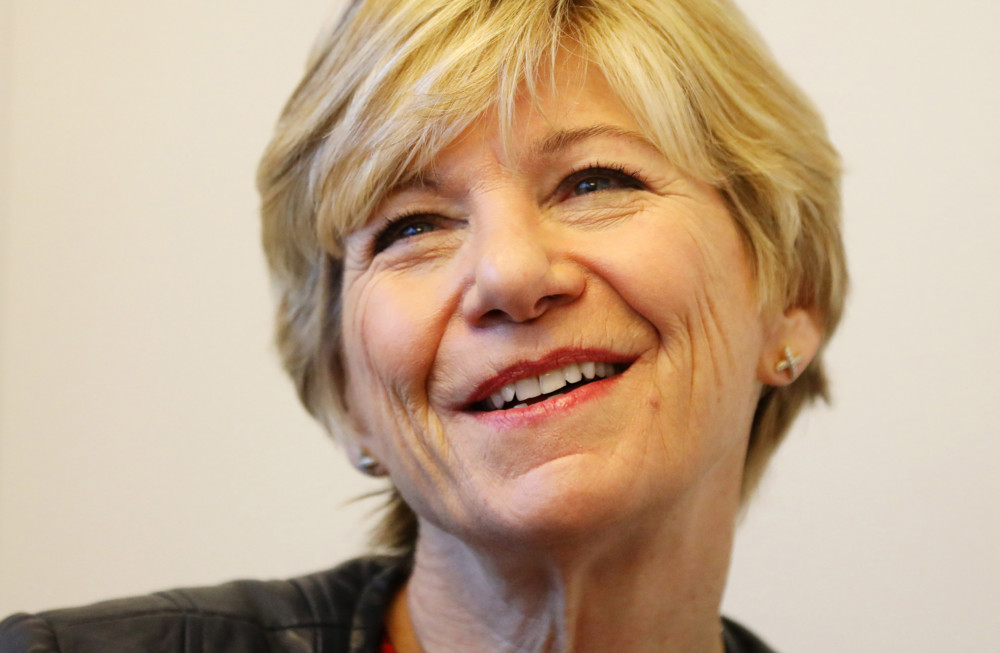By Sandi Doughton
The Seattle Times
WWR Article Summary (tl;dr) The Gates Foundation increased funding in 2017 for efforts to improve the economic and social status of women and girls in Africa, India and other parts of the developing world, including an additional $375 million to increase access to birth control.
SEATTLE
The #MeToo movement that forced the U.S. to confront sexual harassment and gender equality in an unprecedented way this year hasn’t yet taken hold in many of the world’s poorest countries, but the CEO of the Bill & Melinda Gates Foundation believes that’s about to change.
2018 will be a year when “people who have been powerless become powerful,” Susan Desmond-Hellmann predicted in a recent interview at her Seattle office. “It certainly feels like that in America with the dialogue we’ve been having.”
The Gates Foundation increased funding in 2017 for efforts to improve the economic and social status of women and girls in Africa, India and other parts of the developing world, including an additional $375 million to increase access to birth control.
The foundation also stepped away from its traditional focus on technology to provide $20 million in funding for grass-roots women’s movements.
“Globally, women don’t have the same opportunities to speak up (as in the U.S.),” Desmond-Hellmann said. “One of the exciting things about 2017 has been the recognition that women’s groups … particularly in low-resource areas, can give women agency, can give women the power to have a collective voice.”
When Desmond-Hellmann and Melinda Gates recently visited Malawi, participants in a self-help group for female farmers explained how their earnings increased, allowing them to send their children to school and buy land to grow more crops.
The program was so effective that local men started their own version, Desmond-Hellmann said.
Almost a quarter of the $20 million will go to Mama Cash, a Dutch network that funds feminist groups, including unions for textile workers in India and coalitions fighting sexual violence in the Democratic Republic of Congo, where more than 60 percent of women experience physical violence during their lifetimes.
Some of the Gates money is also being devoted to research on the best approaches to empowering women in different communities.
“What works in India may be fundamentally different from what works in Nigeria,” Desmond-Hellmann said. “There are different cultures, different religions and different expectations that people have for how women might participate.”
Cultural barriers were one of the main factors Melinda Gates citied earlier this year to explain why an ambitious plan to make contraceptives more widely accessible to women who want them was falling short.
Nevertheless, 2017 set a record with 300 million women in 69 of the world’s poorest countries using contraceptives, Desmond-Hellmann pointed out.
That progress is at risk from the Trump administration’s proposed cuts in funding for international family planning and its expansion of the so-called global “gag rule” imposed by previous Republican presidents.
The rule bans federal funding for aid organizations that provide or promote abortions anywhere in the world.
Trump’s version also eliminates funding for all other family-planning work _ as well as other programs like HIV prevention, childhood nutrition and primary-care health services _ provided by those organizations.
Desmond-Hellmann described the gag rule as a “major threat” to women who want to space their pregnancies to improve their own health and well-being and that of their children.
“Many people in the world are religious; I understand that,” she said. “But the ability to space your children, to plan your children, I’ve literally talked to people all over the world, of many different cultures and backgrounds, and I’ve not had anyone disagree with me on (the value) of that.”
Even the world’s biggest philanthropy, with a $40 billion endowment, can’t come close to making up major cuts in U.S. spending, Desmond-Hellmann said.
For example, the National Institutes of Health spends about $33 billion a year on biomedical research, compared with the Gates Foundation’s entire research budget of $1 billion a year, she pointed out.
Both Bill and Melinda Gates have been making the case to members of Congress and administration officials that international aid is vital to national security. Nowhere is that more obvious than with pandemic disease, Desmond-Hellmann said. The 2014-2015 Ebola epidemic in West Africa showed how quickly viruses can spread around the globe.
“A disease scare anywhere is a disease scare everywhere,” Desmond-Hellmann said.
To get ready for the next pandemic, the Gates Foundation in 2017 joined with the governments of Germany, Japan and Norway to provide $600 million for the Coalition for Epidemic Preparedness Innovations. The goal is rapid identification and production of vaccines for emerging diseases.
Desmond-Hellman’s biggest disappointment of the year was the failure of a Gates-funded trial to see if infant-mortality rates in India could be slashed by following a type of checklist that has improved care in American hospitals. The study applied a range of best practices, from hand washing to blood-pressure monitoring, but did not have a significant impact.
Now the challenge is to figure out why, and identify measures that will work, Desmond-Hellmann said.
“These women and children must have better outcomes, so what do we do now?”
For the coming year, her top goal is to see polio cases around the world drop to zero. In 2017, the total was less than 20, down from 20 cases every 15 minutes in 1988.
“I’m cautiously optimistic, but this is hard,” she said. “If we’re at the end, it will be a beautiful thing.”














































































































































































































































































































































































